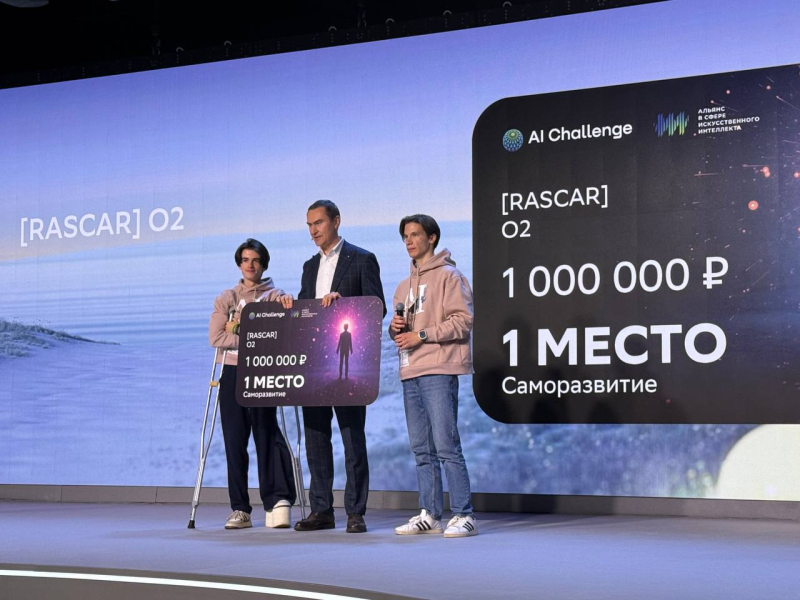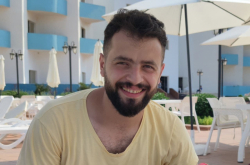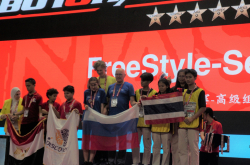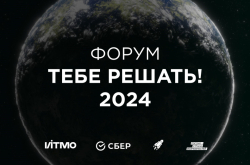AI Junior Challenge 2024 welcomed more than 8,000 students from 65 countries. ITMO students competed as part of five different teams in the event's Researchers track. Alexander Smirnov, a student of ITMO’s Artificial Intelligence Technologies Faculty, and Nikita Iltyakov, a student of HSE University, took first place as the team [RASCAR] O2, having solved the case from T-Bank on the best AI solution for self-development.
“Our case dealt with detection of speech defects. At each of the competition’s three stages, we had to add one new defect to the detection pipeline. One of the main challenges was to understand the math behind audio compression and conversion. I was able to understand the methods we used thanks to the high level of linear algebra training I received at ITMO. As a result, our team has developed an online training service where users can practice tongue twisters and pronunciation of different sounds, as well as work with stuttering, analyze their pronunciation, and receive personalized recommendations. One of our solution’s advantages is its high accuracy. Thanks to a two-step training of the wav2vec2 neural network, we were able to significantly improve the model’s convergence and thus significantly outperform our competitors in the F1 parameter, which demonstrates mean accuracy and recall curve. We won a 1-million-ruble certificate for our model,” shares Alexander Smirnov.
Another gold was secured by the team [RASCAR] MLшарики 2.0 (MLshariki), assembled by Andrey Alekhin, a student of ITMO’s Information Technologies and Programming Faculty. The team has successfully solved a development case from the Samolet group, having created a model for scoring contractors and assessing the likelihood of their financial default in the next six months. They, too, received a 1-million-ruble certificate.
[RASCAR] (((Baby Udis))), the team of Valery Tamrazov, a student of ITMO’s Artificial Intelligence Technologies Faculty, and his brother, Roman, won a bronze medal for the LLM case from SberAI. They were awarded a certificate for 600,000 rubles and received internship offers from Sberbank.
“In the first two stages of the competition, we were working on a system that would answer questions based on textual data. Then, in the final stage, the task got harder: we had to develop a system capable of answering questions based on text or images. Our solution was based on training the model in such a way that all the necessary data (text, graph, and image) were provided in context, allowing the large language model to generate a response based on the entire context. As a result, we made a Telegram bot, where you can upload an image or ask a text question – and get an answer,” explains Valery Tamrazov.
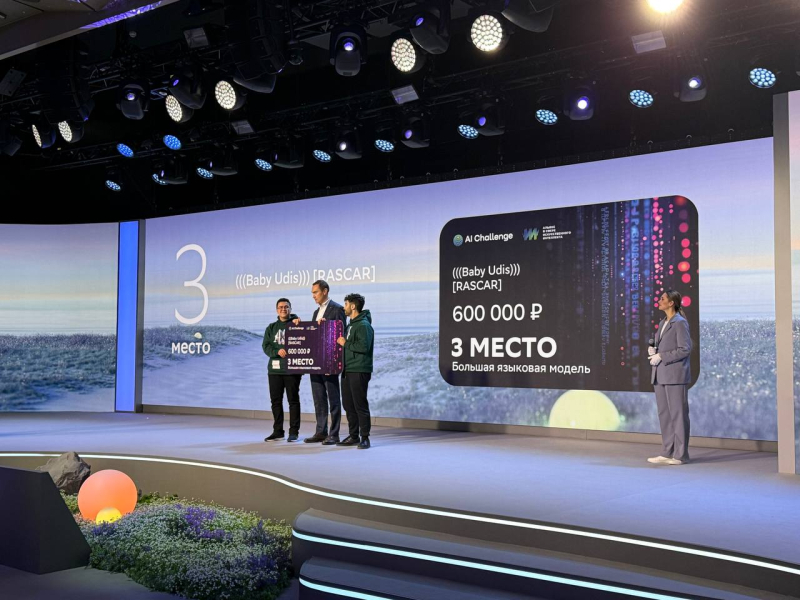
Roman Tamrazov and Valery Tamrazov. Photo courtesy of Mikhail Shterling
Another bronze, this time with a 400-thousand-ruble certificate, was secured by the team [RASCAR] minions, which consisted of Danil Karpov, a student of ITMO’s Artificial Intelligence Technologies Faculty, and MIPT student Anton Epifanov. They tackled a metallurgy case from Severstal, developing a computer vision model that can use a cross-cut image of one batch of pipes to detect the number of pipes in a batch and produce segmentation masks for each pipe.
And another bronze with a certificate for 400,000 rubles went to the team [RASCAR] logistic depression created by Ivan Vyakhirev and Mikhail Shperling, students of ITMO’s Faculty of Digital Transformation.
“We worked on the case from SberEducation, and we needed to develop algorithms that evaluate the sentiment of reviews on a scale from 1 to 10 based on the aspects mentioned, such as feedback on a course’s theoretical and practical aspects or the instructor. Our solution’s advantage is the developed assessment method that calculates the correlation between sentiments of different aspects and takes into account the slightest nuances in a review. We were able to develop this solution thanks to lectures on linear algebra by Roman Popkov, an associate professor of ITMO’s Research and Educational Center for Mathematics. He taught us not to jitter about large formulas – and they helped us write the formula for review sentiment evaluation,” shared Mikhail Shperling.
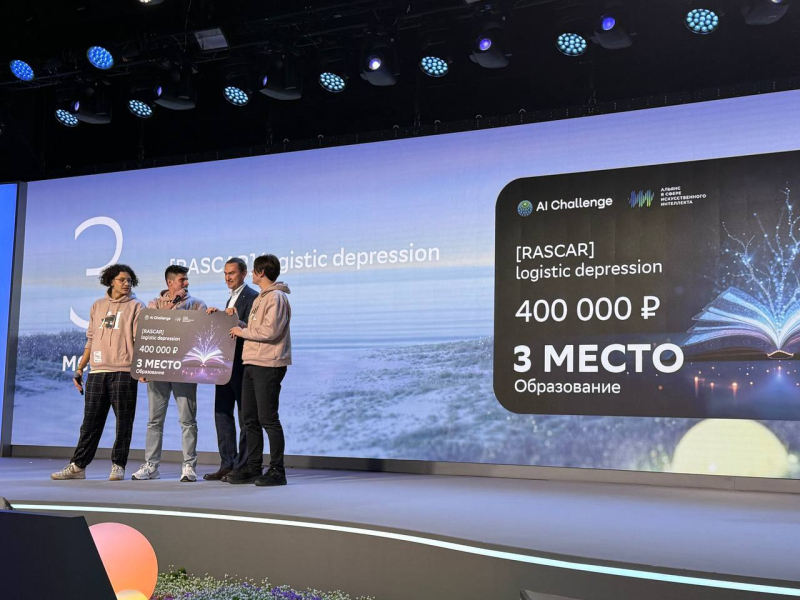
Mikhail Shperling, Maksim Mashaler, and Yan Gustov. Photo courtesy of Mikhail Shterling
AI Junior Challenge is an international youth competition on AI organized by Sberbank and AI Alliance. Participants could choose to compete in the tracks Beginners or Creators (for ages 13-17), as well as the team track Researchers, for participants aged 17 or under. Participants solved cases provided by VK, Severstal, Rusagro, SberEducation, and other major Russian companies. Winners were awarded at the AI Journey conference, sharing a 17-million-ruble prize fund.
